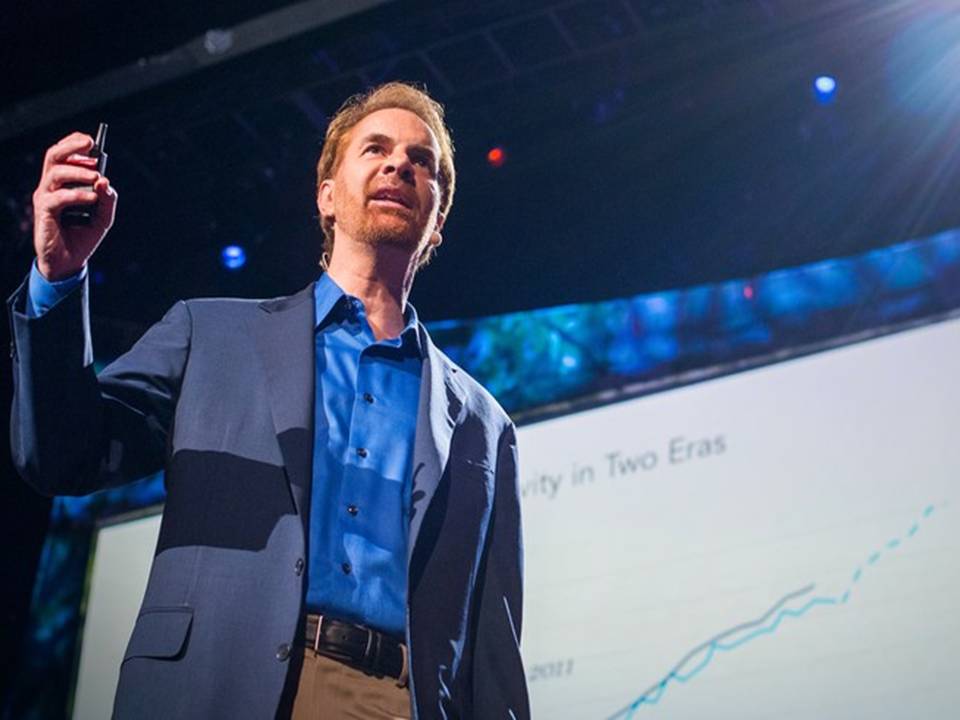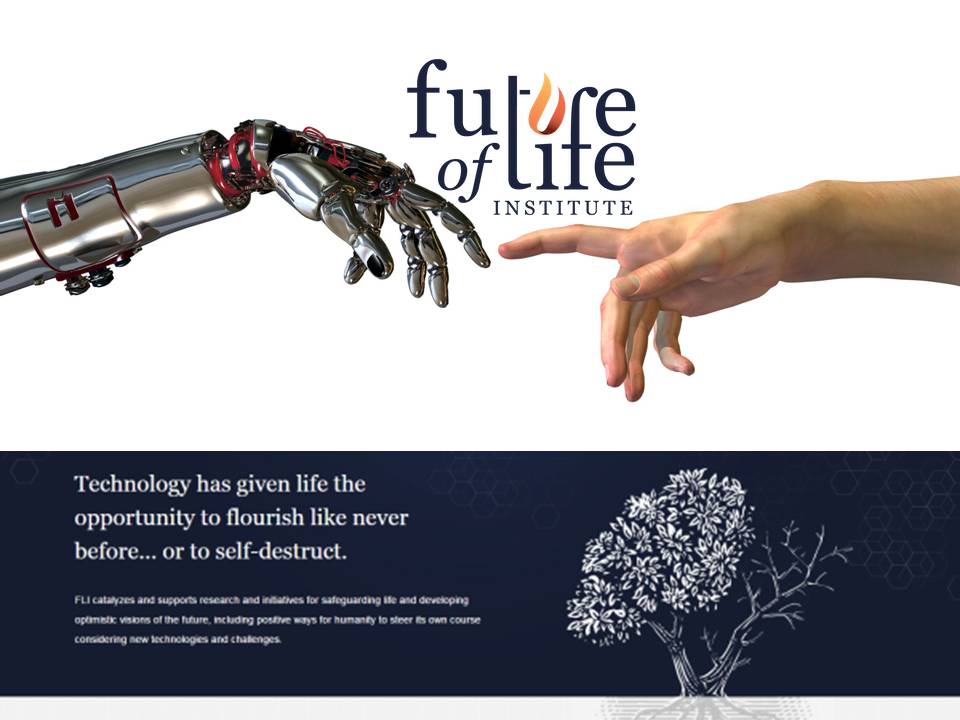In January 2017, MIT Professor Erik Brynjolfsson explores how we can grow our prosperity through automation and AI without leaving people lacking income and meaning, such as providing universal basic income.
“The technologies continue to race ahead, but there has unfortunately been a drop in business dynamism. This is an opportunity for entrepreneurs to think of ways of using humans in new applications, combining them with technology. We call that racing with machines as opposed to racing against them. For some reason, business hasn’t been creating new jobs as effectively as in the past.”
“Our one confident prediction is that digital technologies will bring the world into an era of more wealth and abundance and less drudgery and toil. But there’s no guarantee that everyone will share in the bounty, and that leaves many people justifiably apprehensive. The outcome—shared prosperity or increasing inequality—will be determined not by technologies but by the choices we make as individuals, organizations, and societies. If we fumble that future—if we build economies and societies that exclude many people from the cycle of prosperity—shame on us.”
“Technological progress is an extraordinarily powerful force, but it’s not destiny. It won’t lift us into utopia or carry us into an unwanted future. The power to do that rests with us human beings. Technologies are merely our tools.”

Who is Erik Brynjolfsson?
Erik Brynjolfsson is the Director of the MIT Initiative on the Digital Economy, the Schussel Family Professor at the MIT Sloan School, and Chairman of the MIT Sloan Management Review.
His research examines the effects of information technologies on business strategy, productivity and performance, digital commerce and intangible assets. At MIT, he teaches courses on the Economics of Information and the Analytics Lab.
Brynjolfsson was among the first researchers to measure the productivity contributions of IT and the complementary role of organizational capital and other intangibles. His research also provided the first quantification of the value of online product variety, often known as the “Long Tail” and developed pricing and bundling models for information goods. Brynjolfsson’s research has appeared in leading economics, management, and science journals and has been recognized with ten Best Paper awards and five patents.
Brynjolfsson is the author or co-editor of several books including the NYT bestseller The Second Machine Age: Work, Progress and Prosperity in a Time of Brilliant Technologies. He is editor of SSRN’s Information System Network and has served on the editorial boards of numerous academic journals as well as the Academic Advisory Council of the Federal Reserve Bank of Boston. He is also a Research Associate at the NBER.
Brynjolfsson holds Bachelors and Masters degrees from Harvard University in applied mathematics and decision sciences and a PhD from MIT in managerial economics.




